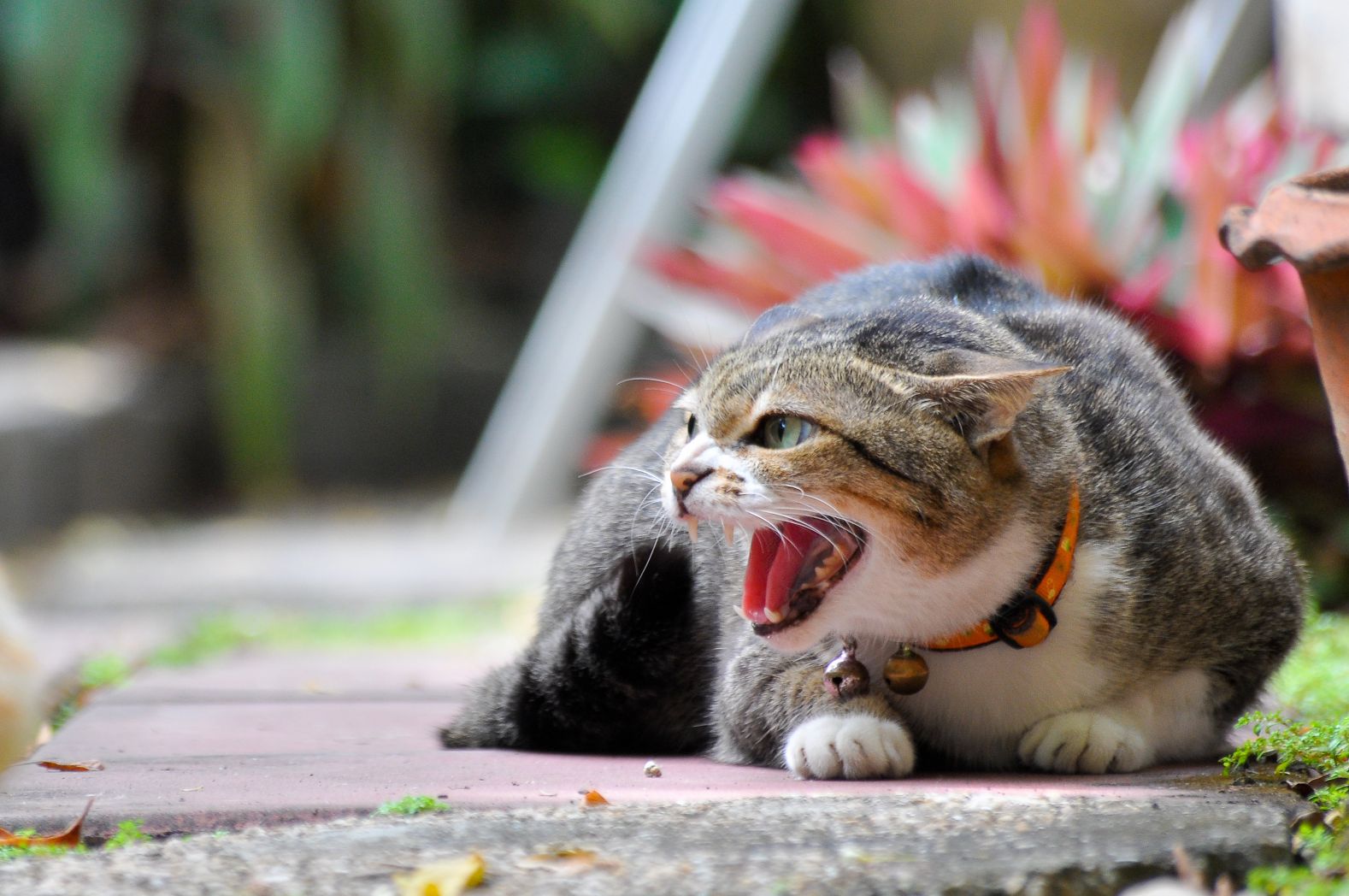The Many Explanations Of Food Aggression in Cats

Cats can definitely adapt well to their home environments, and see few reasons to rock the boat. Fairly agreeable when it comes to their daily needs, cats can enjoy meal times, litter box visits, grooming, and play-ambushing without incident. That doesn’t mean that all cats have it easy, though. Certain behaviors, like food aggression in cats, have the potential to alienate others and make a peaceful cohabitation next to impossible.
What Is Food Aggression In Cats?
This behavior is pretty much exactly as it sounds. Characterized by a pronounced possessiveness, food aggression in cats can involve:
- Close guarding of the food bowl
- Biting or hissing during meals
- Presenting warning signs to both people and pets, like growling or puffing up
- Stealing food
- Breaking through food packaging between meals
- Persistently begging for food
- Idling in the kitchen (or meal space) between meals
Food aggression in cats can be surprising and (almost) cute at first. If unaddressed, this behavior can worsen over time and create serious problems between other pets and people in the house.
How to Approach the Issue
The first thing to address food aggression in cats is to schedule a wellness exam to rule out serious health conditions that make mealtimes difficult for them. The diagnosis and treatment of various issues can reduce or eliminate aggressive behavior and problematic meal times. Conditions like periodontal disease, hyperthyroidism, and neurological issues can lead to behavioral changes, especially when food is involved.
Once medical concerns are either treated or ruled out, we can start to zero-in on your cat’s environment. Are they under any stress at home? New roommates, construction, changes to dynamics (including a new or lost pet), and a move can all signal behavioral shifts.
Wild Feline Traits
Cats, even domesticated ones, are genetically hardwired to hunt and eat alone (as opposed to wolves and their descendants, who work as a pack). As a result, this prevailing instinct can be applied when guarding their food from other hungry mouths.
If your cat was weaned too early from their mother, they may suffer from feelings of food insecurity or scarcity. Consequently, when faced with having to share their food, food aggression is a likely outcome.
Handling Food Aggression In Cats
Positive reinforcement training involves rewarding good/positive behaviors, and ignoring bad/negative behaviors. If they beg for food, don’t give in. Instead, only provide their full bowl when they are being quiet and calm. Any attention given towards unwanted behaviors simply reinforces them.
A separate eating area can reduce food aggression in cats. If your feline feels safe and secure, they are less likely to exhibit traits of insecurity or dominance around meal times. You can also attempt to feed your cats at different times in their own designated eating spots.
Add environmental enrichment and exercise to your cat’s daily schedule. A happy cat is usually healthier. Give them lots of opportunities for play, climbing, snuggling, and more every day.
We’re Here to Help!
If you have questions about food aggression in cats, or concerns about your cat’s behavior, please give us a call at (651) 388-1103. Our veterinarians and staff members are committed to helping you achieve your cat’s optimal health and vitality.

